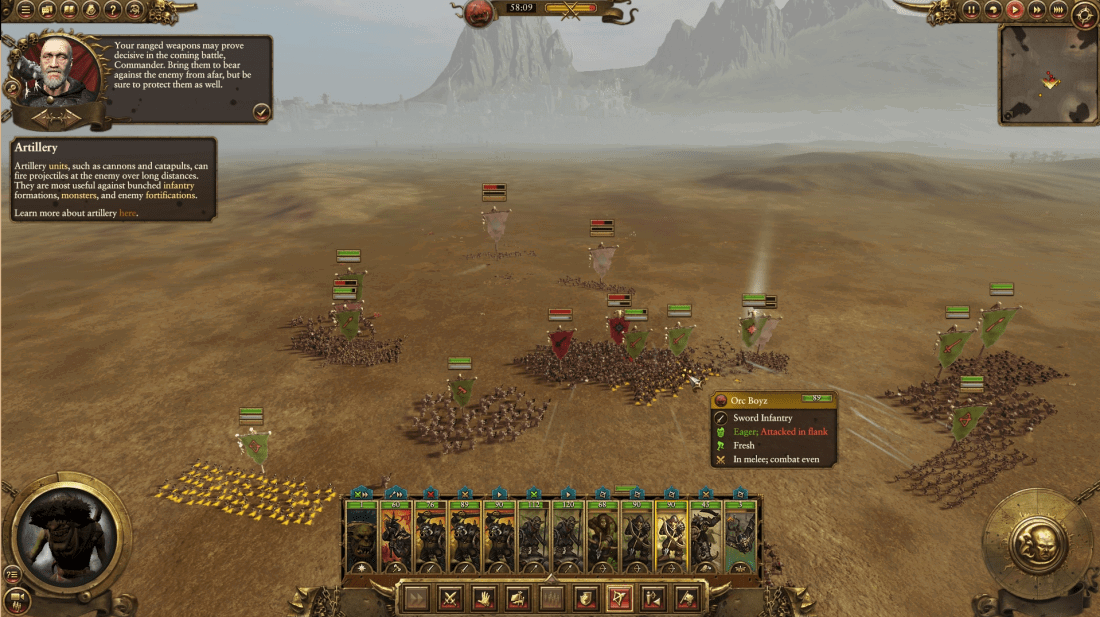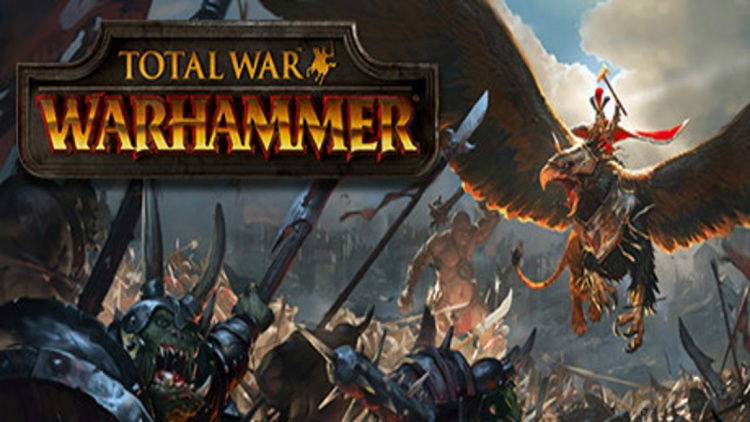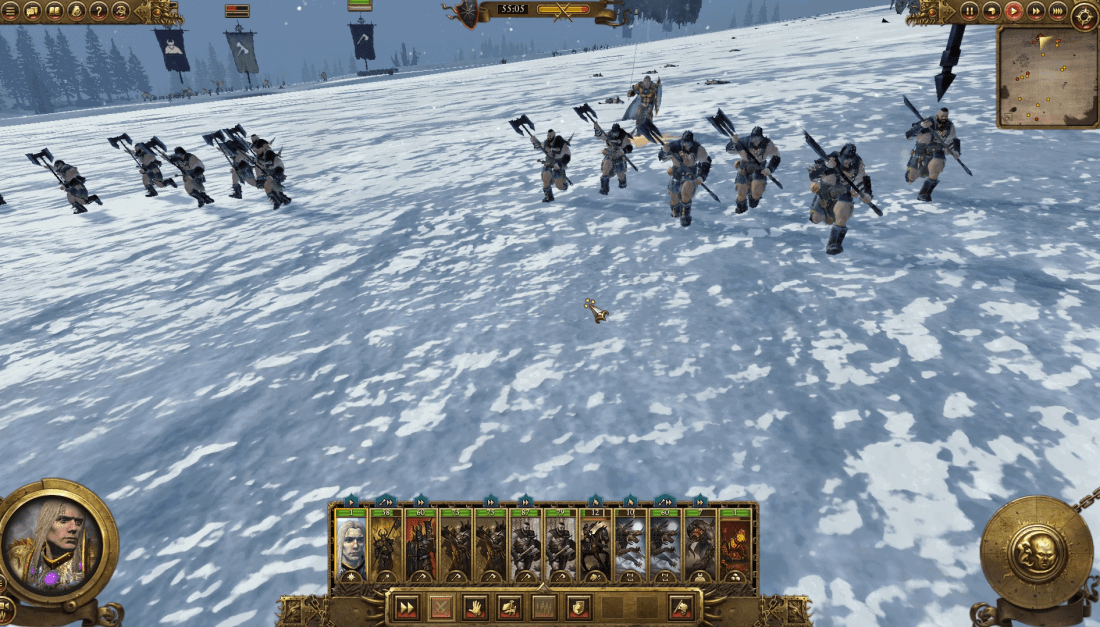To speak of the legacy of the Warhammer franchise is to bring up decades of some of the finest in tabletop gaming: from a rich world with memorable factions to quintessential tabletop wargaming. Similarly, to bring up Total War is to speak of the premier historical real-time strategy game series. Though some may have considered it a long shot or even an impossibility, these two landmark series have finally crossed paths in the aptly named Total War: Warhammer. Can this game stand as classic Warhammer‘s answer to Warhammer 40.000’s monumental Dawn of War series? Let’s have a look and find out.
Game Name: Total War: Warhammer
Platform(s): PC
Publisher(s): Sega
Developer(s): Creative Assembly
Release Date: 5/24/2016
Price: $59.99
Traditionally, Total War is based in resource management akin to the Civilization series as well as a large-scale battalion-style combat system. Coincidentally, Warhammer is centered around a similar battalion style of gameplay, and as such it stands to reason that the two would go together well. With that said, the outcome of this project could be questioned; however, Total War: Warhammer excels beyond what it could have been. For all we knew, CA could have made a blank game in the Total War style and slapped basic Warhammer elements in, but Total War: Warhammer (which I will henceforth refer to as Total Warhammer) oozes understanding and love for the source material. For example, the Greenskins (Orcs and goblins) don’t just have some rinky dink cannons for their artillery, instead, they have Doomdivers: goblins wearing makeshift wingsuits being flung out of catapults. Similarly, the Warriors of Chaos use the Hellcannon, a fairly obscure unit in the Warhammer world.
The units are just for starters, though; the game’s selectable faction leaders (lords) are all among the most notable heroes in the franchise, the beautiful landscapes are reflective of the source material, and there is even a terrain-based status effect based on the winds of magic (a spellcasting resource). All of this comes together to create not only a solid wargaming experience but an authentic Warhammer experience.
Gameplay is just as intense and methodical as it has always been for the series, but with some interesting new twists. Of course, there’s the managing of unit types and matching them in favorable fights; take for example dwarven slayers, slayers are trained to fight massive monsters, that’s why they’re called as such. Therein, it’s wise to send them over to any giants or hulking bat-beasts that the enemy might want to send your way. Counters for certain types of units are not always so clear cut as this, but they always are present in one form or another.
Of course, this is Total War, not Single Battle; meaning the campaign mode offers gameplay outside of combat: growing towns, forming treaties with other forces, finding ways to bolster your forces for the next battle; each one a concept you have to worry about.
With all of the classic gameplay and tactics of the original series, Total Warhammer takes one final step to give it a feeling of true authenticity: faction traits. Not just any traits, but ones truly attached to the lore. For example, the Vampire Counts literally fall apart without leadership as most of them are just reanimated corpses, and the Warriors of Chaos have no option besides utterly destroying any town they raid.
What’s that? These are really simple traits that don’t scream Warhammer? What about the Greenskins, who after each victory gain “fightyness” and the ability to use that resource to gain free troops who want in on the action? Then there’s the Dwarves, who hold their book of grudges (read: L’s). Whenever someone raids a dwarven settlement, kills a dwarf, or cuts a dwarf in line at the tavern, another entry is created in the book. So petty are the Dwarves that in their campaign mode, they can’t actually win unless they resolve every grudge in the book.

In the end, the enjoyment to be had from this game changes depending on what series you come from. If you come from Total War, you might find that anything involving an economy is dumbed down drastically to the point of making getting more money a yes/no decision at some points. On the other hand, if you come from Warhammer, you will find that this title was made with a love and understanding rivaling yours (of course you may have to deal with your favorite lord or even faction being absent from the game). In the end, Total War: Warhammer is worthy of its license, and should not be missed by any fan of the tabletop game.
* A review copy of this game was provided by the publisher.*
Total War: Warhammer
It’s been said: if you love Warhammer, you’ll love this game. The attention to lore and detail is simply too fantastic to not admire. If you have any attachment to either franchise or even the RTS genre in general, this is definitely worth the buy.
Pros:
- True love and attention to world lore
- Intense gameplay reflective of the source material
Cons:
- Somewhat shallow gameplay outside of actual battles
- Letting the AI take over a battle is an easy way to slowly throw a campaign
-
In the grim, dark future, there is only war... Wait... that's not right is it?



